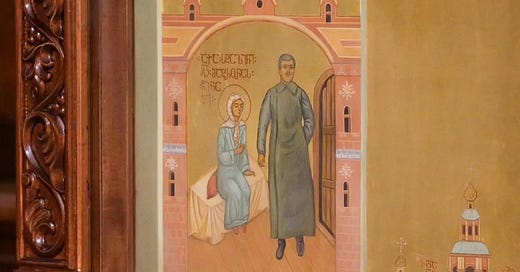Divine Diplo Update #1: Rome to Istanbul via Vilnius
Stalin Icon, Bartholomew's Baltic Move, Kosovo's Holy See Mission, Pope Worries for Ukraine
Upgrade to paid to play voiceover
Hi everyone, and welcome to my first Substack. Church politics is usually fast-paced, but developments are incredibly dynamic around this time of the year. There are lots of statements from church leaders followed up by politicians and various interest groups. Here’s a selection of four stories that take you around the Baltics, Ukraine, Georgia, Istanbu…
Keep reading with a 7-day free trial
Subscribe to Divine Diplomacy to keep reading this post and get 7 days of free access to the full post archives.




